Economics of Eid
As the darkness of night made way for the first light of day, a rhythmic hum echoed through the tranquil dawn in Jamalpur like a heartbeat. The sound emanated from one of the tin-shed houses in the sleepy village of Baghbari, where Razia Sultana was working diligently in front of a sewing machine, indifferent to her surroundings. Tirelessly, spurred on by the knowledge that she had only seven days to go until Eid-ul-Fitr and 50 dresses still waiting to be crafted, the 45-year-old forged ahead.
Sultana has experienced a five-fold surge in orders ahead of Eid this year and plans to use a portion of the extra income to partake in the festival. "I aim to earn a minimum of Tk 50,000 during this festive season. I plan to save a portion of the earnings, while the remaining will be used to meet the additional expenses during Eid," she said.
Sultana's hard work embodies the spirit of working individuals across the nation, all engrossed in making their preparations for the country's biggest religious festival, likely on April 10.
Eid, which is celebrated as a time of joy, unity, and generosity to mark the culmination of the holy month of Ramadan, also serves as a significant economic catalyst.
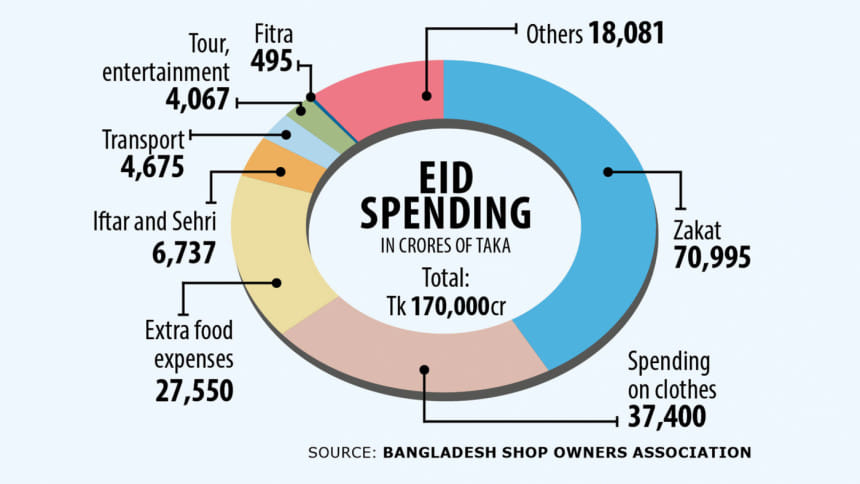
Businesses conducted ahead of Eid-ul-Fitr amount to about Tk 170,000 crore, according to a survey by the Bangladesh Shop Owners Association (BSOA). Of the sum, Tk 37,400 crore is spent on clothes. Much is also spent on goods ranging from prayer caps to milk, sugar and almost everything in between.
In tune with the occasion, the spirit of giving is also in full show. People support various charitable causes ahead of Eid, providing vital assistance to the poor so they too can take part in the festivities.
According to BSOA estimates, Tk 495 crore is given as Fitr, a form of alms-giving mandatory for every able Muslim. Even more is distributed through informal channels, especially as people return to their homes or ancestral villages ahead of the three-day celebration.
About 40-50 million passengers will travel on the occasion of Eid, making the occasion the busiest for the transport sector, said the Bangladesh Jatri Kalyan Samity.
People want to celebrate Eid more lavishly compared to their everyday lives, starting with the food they eat to the products they use. As a result, demand for clothes and other consumer goods increases
Mohammed Helal Uddin, a professor of the Department of Economics at the University of Dhaka, explains that many people are likely to provide financial assistance to relatives and neighbours. As a result, there will be a redistribution of wealth.
Remittance inflows usually balloon ahead of Eid, but in a departure from the historical trend, funds transferred by migrant workers fell slightly in March. Workers sent home $1.99 billion last month, which will play another role in boosting the economy.
Moreover, the almost overwhelming volume of business ahead of Eid also generates temporary job opportunities for thousands.
Mohammad Nazmul Kabir, manager of a Bata outlet in Mirpur-1, said they had employed 28 additional sales assistants, mostly students, on a contractual basis for the month.
All of these factors lead to a huge amount of cash transactions, which inject dynamism into the economy and contribute to the country's gross domestic product (GDP). Nearly all businesses enjoy good sales, with people spending money on decorating their houses and buying clothes, jewellery, furniture, and various items as gifts.
Celebrations also feature sweet and savoury delights. The hospitality shown by all is also quite evident, with Tk 27,555 crore spent on entertaining guests during Eid, according to the BSOA.
Helal Uddin, president of the BSOA, said: "People want to celebrate Eid more lavishly compared to their everyday lives, starting with the food they eat to the products they use. As a result, demand for clothes and other consumer goods increases."
Businesses reap the rewards of enticing advertising campaigns and services which they prepare months prior, with sales of home appliances such as refrigerators and televisions also increasing. Soon after the start of Ramadan, thousands of customers started flocking to malls and markets.
SM Khaled, managing director of Sara Lifestyle, a fashion retailer, says Eid accounts for about 40 percent of the total sales of his company.
"Targeting Eid, research and development takes place to produce new designs and attract customers. Businesses begin preparations even a year ahead of the festival."
The BSOA survey shows that average sales of a clothing brand increase three-fold to Tk 80,000-Tk 90,000 per day ahead of Eid.
Shaheen Ahmed, the owner of Anjans, one of the leading fashion and lifestyle brands, says the production of panjabis, the most popular attire for men during Eid, has increased by 10 percent due to a spike in demand.
Sara Lifestyle's Khaled added that their sales had increased by 25 percent after the 17th Ramadan compared to last year.
The prices of apparel have increased this year owing to higher prices of raw materials, including yarn, and a hike in production costs, he said. The average price for fabrics used to make panjabis has gone up by Tk 40-50 per yard, said Soumik Das, chief executive officer of Rang Bangladesh, a clothing retailer.
Das said they had lowered profit margins instead of passing on the burden of higher costs to customers, who are already facing financial constraints due to higher consumer prices.
The demand for footwear also climbs ahead of Eid. Eid-ul-Fitr accounts for about 25 percent of the sales in the segment, said Arfanul Hoque, head of retail at Bata. Ahead of Eid-ul-Fitr, footwear sales increase three-fold and half of the new designs are also launched.
As Eid is also known for culinary delights, consumption of sugar and milk jumps as well.
Mahfuzul Haque, acting general manager for marketing of Bangladesh Milk Producers' Co-operative Union Ltd (Milk Vita), says the sales of milk double in the run-up to the Eid festival compared to normal times. "The sales of sweetmeats, sour curd, and sweet curd also increase."
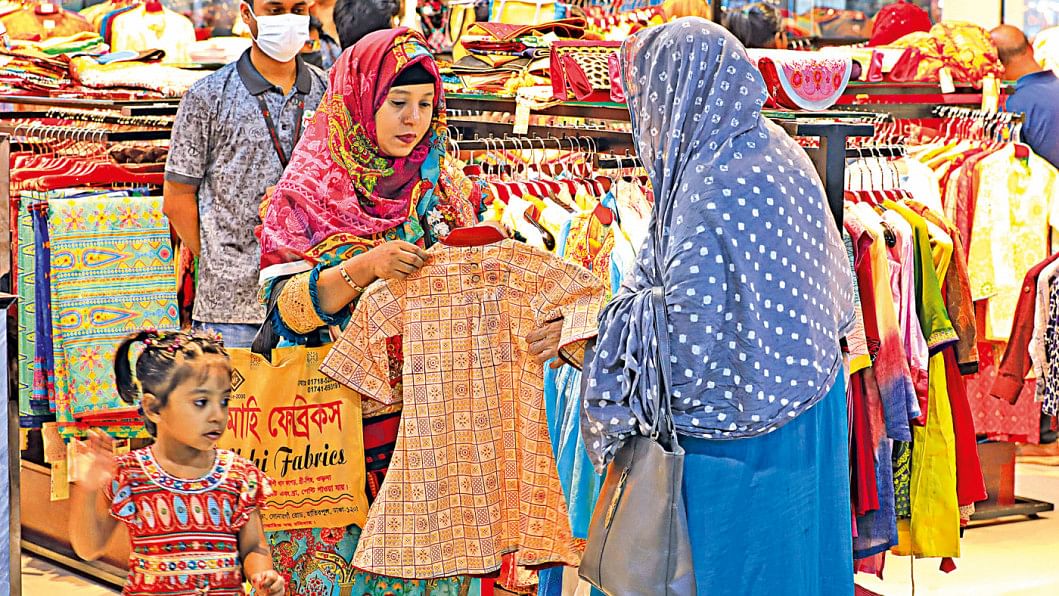
A surge in demand for aromatic rice, chicken, beef, mutton, and oil, as well as spices also precedes Eid festivities.
Taslim Shahriar, deputy general manager of Meghna Group of Industries, one of the biggest commodity importers and processors in Bangladesh, said sales of consumer goods double ahead of Eid-ul-Fitr. For example, his company sells about 20,000 tonnes of soybean oil every month whereas it jumps to 35,000 tonnes ahead of Eid.
The demand for jewellery also rises, with daily sales of a jewellery shop swelling to about Tk 3 lakh from Tk 80,000, according to the BSOA.
Selim H Rahman, chairman of Hatil Furniture, a popular furniture brand, said furniture sales go up 25 percent during Eid.
Not all head towards the countryside to celebrate the occasion. Holidaymakers set out to visit popular tourist spots as well as resorts, turning the tourism sector into a recipient of Eid blessings.
Pradip Sanyal, executive director of Bhawal Resort and Spa in Gazipur, said the major share of an entire year's business takes place during Eid.
"90 percent to 100 percent of the rooms are booked during the festival."


 For all latest news, follow The Daily Star's Google News channel.
For all latest news, follow The Daily Star's Google News channel. 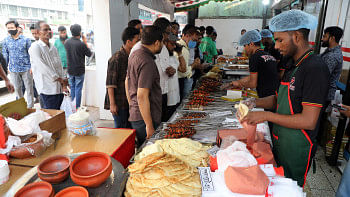


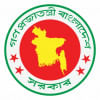
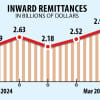
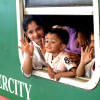
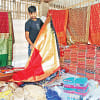
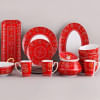
Comments